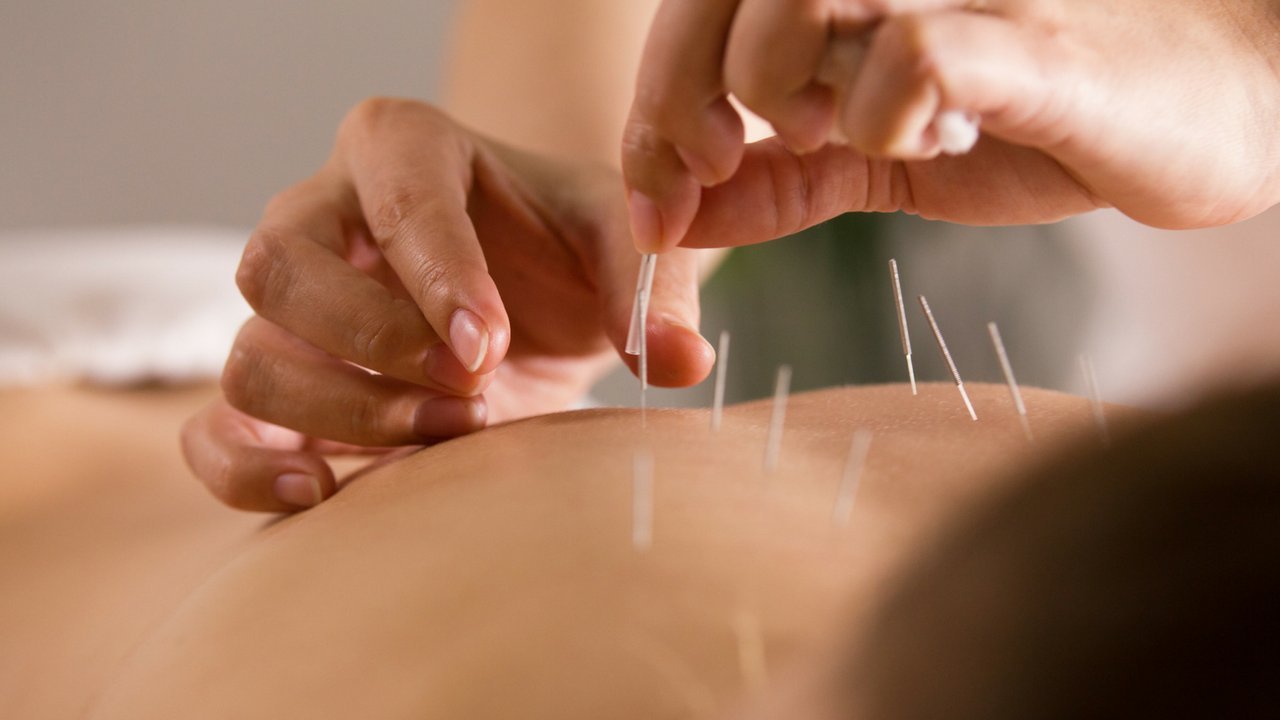Acupuncture
Acupuncture involves the insertion of very thin needles through your skin at strategic points on your body. A key component of traditional Chinese medicine, acupuncture is most commonly used to treat pain.
Acupuncture is a system of medicine originating from East Asia that has been practiced for thousands of years. Early physicians discovered that there was an energy network flowing throughout the body called Qi (pronounced “chee”) or vital energy. Qi circulates throughout the body along specific pathways called meridians. Depending on an individual’s condition, the practitioner chooses a specific combination of points to promote healing and resolutions of health issues.
According to acupuncture theory, an illness arises when Qi, blood, and body fluids become unbalanced or blocked due to stress, injury, lifestyle, or other reasons.
Asian medicine stimulates different points in the body to remove blockage, stimulate the immune system, and harmonize the emotions. When Qi is able to flow freely, health is maintained.
The benefits of acupuncture treatments are cumulative. Most patients benefit from receiving treatment often and regularly in the beginning. Over time, the body improves its function and ability to work harmoniously, and most people get a “tune up” once per month.
How does it work?
Acupuncture is a system of medicine that works in the following ways:
Acupuncture promotes blood flow
This is significant because everything the body needs to heal is in the blood, including oxygen, nutrients we absorb from food, immune substances, hormones, analgesics (painkillers), and anti-inflammatories. Restoring proper blood flow is vital to promoting and maintaining health. For example, if blood flow is diminished by as little as 3 percent in the breast area, cancer may develop. Blood flow decreases as we age and can be impacted by trauma, injuries, and certain diseases. Acupuncture has been shown to increase blood flow and vasodilation in several regions of the body.
Acupuncture stimulates the body’s built-in healing mechanisms
Acupuncture creates “micro traumas” that stimulate the body’s ability to spontaneously heal injuries to the tissue through nervous, immune, and endocrine system activation. As the body heals the micro traumas induced by acupuncture, it also heals any surrounding tissue damage left over from old injuries.
Acupuncture releases natural painkillers
Inserting a needle sends a signal through the nervous system to the brain, where chemicals such as endorphins, norepinephrine, and enkephalin are released. Some of these substances are 10 to 200 times more potent than morphine!
Acupuncture reduces both the intensity and perception of chronic pain
It does this through a process called “descending control normalization,” which involves the serotonergic nervous system.
Acupuncture relaxes shortened muscles
This in turn releases pressure on joint structures and nerves and promotes blood flow.
Acupuncture reduces stress
This is perhaps the most important systemic effect of acupuncture. Recent research suggests that acupuncture stimulates the release of oxytocin, a hormone and signaling substance that regulates the parasympathetic nervous system. You’ve probably heard of the “fight-or-flight” response that is governed by the sympathetic nervous system. The parasympathetic nervous system has been called the “rest-and-digest” or “calm-and-connect” system and in many ways is the opposite of the sympathetic system.
